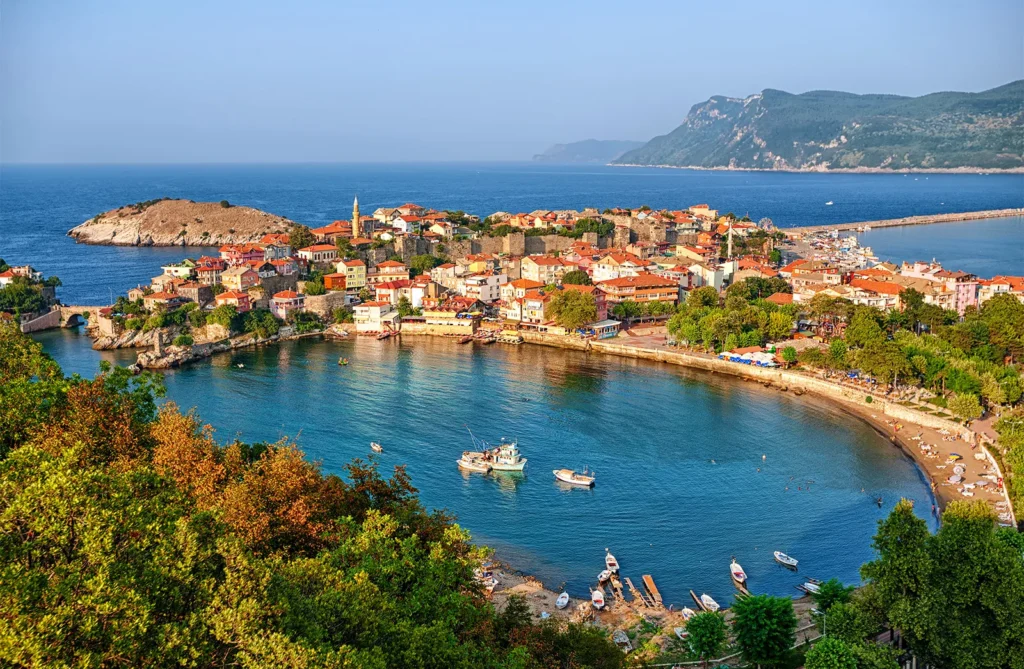In February 2023, a series of earthquakes with magnitudes ranging from 5.6 to 7.8 occurred near the borders of southern Turkey and northern Syria. These earthquakes resulted in significant devastation, and the death toll has surpassed 50,000 people. However, for tourists planning to visit Turkey, it’s important to note that little has changed in popular tourist destinations.
The affected areas are located many hundreds of miles away from tourist centers such as Istanbul, Cappadocia, and the Mediterranean coast. These regions remain largely unaffected by the earthquakes and continue to offer a safe and enjoyable travel experience for visitors.
If you’re considering traveling to Turkey, it is essential to stay informed about any updates or travel advisories from official sources. While the earthquakes have had a devastating impact in certain areas, the majority of the country’s tourist destinations remain unaffected and welcoming to visitors.
As with any travel plans, it is recommended to exercise normal safety precautions, follow the guidance of local authorities, and stay updated on the latest information. Enjoy your trip to Turkey and explore its rich cultural heritage, stunning landscapes, and vibrant cities with peace of mind.

What’s the latest travel advice?
The latest travel advice from the UK Foreign Office advises travelers to avoid the immediate vicinity of the earthquakes and follow the guidance of local authorities. It is worth noting that the affected area is not a typical tourist destination in Turkey.
While the affected regions are in a state of mourning, there are no specific travel restrictions in place for the rest of the country. Turkey, being heavily dependent on tourism, welcomes visitors to other regions where flights continue to operate normally, and hotels remain open.
It is always prudent to stay informed about the situation and follow any updates or travel advisories issued by relevant authorities. Travelers should exercise caution, adhere to local guidance, and prioritize safety while exploring different parts of the country. By doing so, visitors can still enjoy the diverse attractions and experiences that Turkey has to offer.
Areas affected by the earthquakes?
A series of earthquakes have impacted several provinces in Turkey, particularly in the border region between southern Turkey and northern Syria. The earthquakes occurred on the following dates and locations:
- On February 6, a 7.8 magnitude earthquake struck near the city of Gaziantep.
- Later on February 6, a 7.7 magnitude earthquake occurred in the nearby Kahramanmaras area.
- On February 20, a 6.4 magnitude earthquake hit outside the city of Antakya.
- On February 27, a 5.6 magnitude earthquake took place in the Malatya region.
These earthquakes have affected ten provinces in Turkey, including Kahramanmaras, Gaziantep, Malatya, Diyarbakır, Kilis, Sanlıurfa, Adıyaman, Hatay, Osmaniye, and Adana. Access to the affected areas is currently limited to aid vehicles, as rescue and relief efforts are underway.
It’s important to note that these areas are distinct from popular tourist destinations such as Istanbul, Cappadocia, and the Mediterranean coast, which remain unaffected by the earthquakes. Travelers planning to visit these tourist centers should not be directly impacted by the seismic activity in the aforementioned regions.
When considering travel to Turkey,
It is important to be aware of the following information:
- Border Areas: The UK Foreign Office advises against all travel within 10km of the border with Syria and all but essential travel to Sirnak and the province of Hakkari due to security concerns.
- Vigilance: Remain vigilant throughout the country as sporadic protests and terrorist attacks can occur without warning.
- Crime: While overall crime rates are low, incidents of robbery and theft, particularly pickpocketing, are common. There have been reports of passports being stolen from rented villas, including from safes, in certain areas such as Didim, Kas, Kalkan, and the Fethiye/Hisaronu/Ovacik regions.
- Spiked Food and Drinks: Be cautious of accepting food and drink offers from strangers, as they may be spiked.
- Assistance with Clubs, Restaurants, and Currency Exchange: Exercise caution if someone offers to take you to a club or restaurant or assist with currency exchange. Be wary of potential scams or fraudulent activities.
- Sexual Assault and Rape: Reports of sexual assault and rape cases have occurred, primarily during the busy summer period in coastal regions. Many incidents involved individuals who had earlier encountered the perpetrator.
By staying informed, practicing caution, and following the guidance of local authorities and the UK Foreign Office, travelers can help ensure a safer and more enjoyable experience while visiting Turkey.
For British citizens traveling to Turkey
The entry requirements are as follows:
- Visa Exemption: British citizens can visit Turkey without a visa for stays of up to 90 days within a 180-day period. This applies to tourism, business, and certain other purposes. If you plan to stay longer, you will need to obtain a visa or residence permit.
- Passport Validity: Your passport should have a validity of at least 150 days remaining from the date of your arrival in Turkey. Additionally, ensure that your passport has a full blank page available for entry and exit stamps.
- COVID-19 Travel Restrictions: Turkey has lifted all COVID-19 related travel restrictions. As of now, there is no requirement to fill in any forms, present vaccination certificates, or undergo COVID-19 testing before travel. Mask-wearing requirements may vary, so it is advisable to check the latest guidelines before your trip.
It’s important to stay updated on any changes to entry requirements, as regulations can evolve. Prior to your travel, consider checking the official website of the UK Foreign, Commonwealth & Development Office for the latest information regarding entry requirements for British citizens traveling to Turkey.






